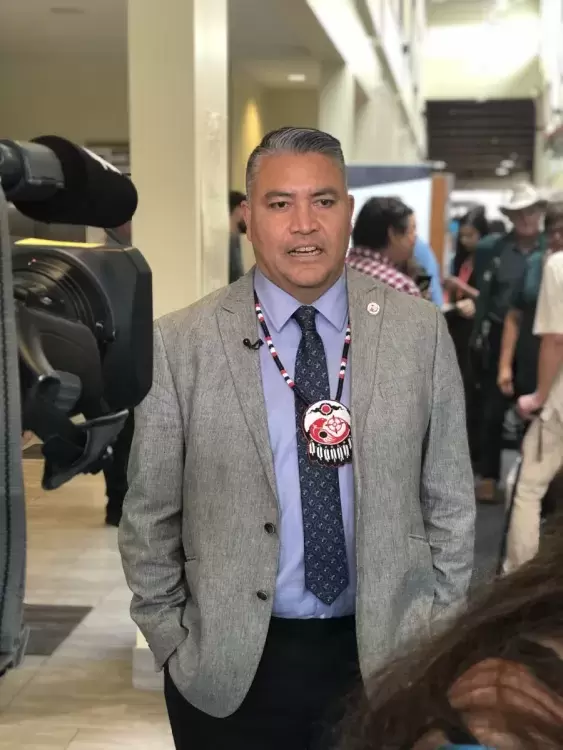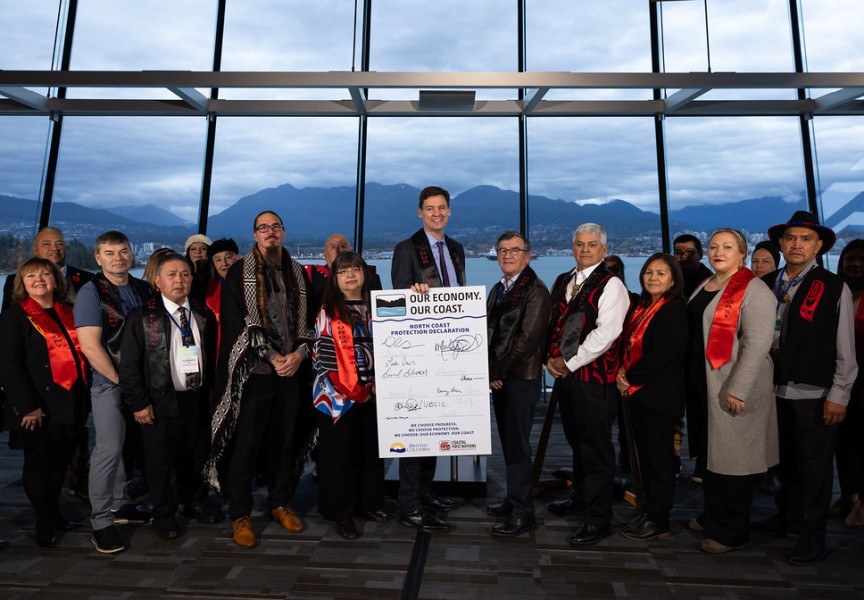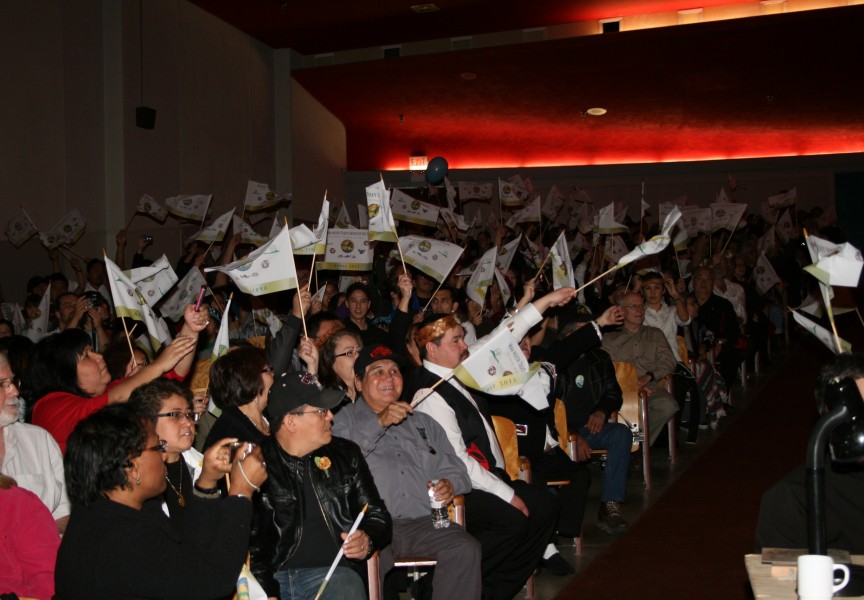The B.C. Assembly of First Nations is building an economic development centre, with the aim of providing Indigenous communities with much-needed expertise to pursue ventures towards prosperity.
The announcement of the BCAFN’s Centre of Excellence in First Nations Economic Development was made on Oct. 11, with a $1.2 million commitment from the provincial government to help get the initiative started. The centre’s location and date of opening is yet to be determined, but BCAFN Regional Chief Terry Teegee said the development will make “educated, well-versed assistance” available to First Nations with six dedicated staff.
“Far too often what I’ve heard from many chiefs across British Columbia is we don’t have capacity, we don’t have enough resources,” said Teegee during a press conference. “They don’t have someone who is directly committed to economic development, nor do they have somebody that looks after their title and rights.”
A joint announcement from the province and the BCAFN stated that the six staff members will be employed by the economic development centre this year, with plans to grow in the future.
The hope is for the centre to better empower First Nations to participate in the province’s economy, thereby improving the living standards of Indigenous peoples in B.C. This year the First Nations Leadership Council cited an “intergenerational cycle of poverty” that many Indigenous communities face, according to its report Income Supports and Indigenous Peoples in B.C.
During the Oct. 11 announcement Ravi Kahlon, B.C.’s minister of Jobs, Economic Recovery and Innovation, identified barriers to First Nations fully participating in the economy.
“We heard that these barriers include discrimination and systemic racism, the need for more services and infrastructure in remote communities, regulatory burdens, and limited access to capital,” said the minister. “It became clear that in order to build an economy that includes everyone, we need to remove these barriers.”
Part of the challenge has to do with location, observed Teegee.
“Approximately 15-20 per cent of our First Nations are within urban centres, so their economic development is far different than rural First Nations,” he said.
Yet opportunity exists in natural resources, industries that too many Indigenous communities have not participated in, said Teegee.
“Forestry, mining, natural gas, all these resources that we export, First Nations are not part of the equation,” he stressed. “Certainly, we’re seeing more discussions with industry and government, but clearly not enough.”
The investment aligns with the province’s Declaration on the Rights of Indigenous People’s Act. This legislation stresses the importance of a First Nation determining its own future, but the establishment of a centralized economic support location proved to be more viable for the province than dispersing funds to B.C.’s 204 individual First Nations.
“I feel this will fill a big gap of support services, expertise and technical support,” said Daylu Dena Council Deputy Chief Harlan Schilling, who is also on the B.C. Assembly of First Nations’ board of directors. “This provides a hub for small First Nations, like my First Nation here in Lower Post, an opportunity to work with other economic development leaders in our province.”







